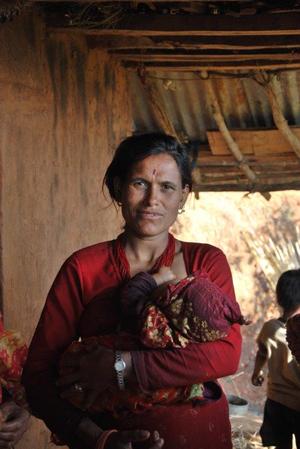As a global public health nutrition professional, an important day on my agenda is World Food Day, as it provides me an opportunity to rally my friends, colleagues and nutrition advocates to reflect on what a world free from hunger and malnutrition would look like.
One discussion that rarely comes up is about the cultural value and dignity of food as an integral part of food and nutrition security efforts, what I refer to as "food dignity" - having access to nutritious food, including culturally acceptable and valued foods on a daily basis.
I believe that access to nutritious food is more than just about providing energy and nutrients for the body. It is also about supporting cultural identity and diversity. From the moment we enter the world, food dignity becomes part of our lives, with breast milk as a perfect example of food dignity. To support these efforts, my colleagues and I work on projects that collaborate with health workers, traditional birth attendants and grandmothers groups to ensure mothers have the optimal nourishment and social support to breastfeed children, noting that breast milk is deservingly celebrated in so many cultures.
There is cultural pride when a person can serve nutritious food produced from their land to family and friends. For many people who live in rural communities around the world, consuming the prized traditional foods requires access to traditional lands, time and resources, and an in-depth connection with the local environment to understand the ingredients and timing of an optimal harvest.
What happens, though, to food dignity and cultural identity when these foods are not accessible? We are seeing more and more people faced with this reality; significant numbers of people displaced internally or to foreign countries due to disaster or conflict. Although food is provided for those living in refugee camps and via organizations working to lessen the devastating effects of malnutrition, restoring food dignity and security goes beyond meeting basic nutrition requirements. Emergency response efforts are not always able to address diet diversity needs or culturally celebrated food needs. These issues require long-term solutions before displaced communities are able to eat recognized and celebrated foods.
My work is focused on ensuring needed micronutrients are there when food is not enough, with some focus on increasing food dignity options for families. Fortified foods, such as flours and oils, can offer many of the missing micronutrients to help fill gaps from monotonous diets, although they cannot replace valued traditional foods. For example, in my project in Ethiopia, we are working with women's cooperatives to produce flour using available traditional grains and, at the same time, supporting mothers to add multi micronutrient powders (MNPs) for their young children to fill the gap from missing vitamins and minerals, and support their rapid growth and developments.
Another example close to my heart is MI's salt iodization programs in Senegal, where generations of families have harvested salt. Salt is a common household ingredient, which is why iodized salt has been so successful in efforts to reduce iodine deficiency disorders. MI took a health-focused program, universal salt iodization, and expanded it to support sustainable economic growth. We have helped generations of Senegalese families and small-scale producers have the tools they need to work effectively and ensure their salt is adequately iodized, including providing technical and logistical support to develop profitable business plans. Our efforts have also supported women's economic development, too, enabling more women to have greater purchasing power to buy nutritious foods, supporting the health and education of their children and, at the same time, increasing the food dignity of their families and communities.
World Food Day is the day to recognize how critical nutritious food is - not just to keep a body healthy, to fight off disease and ensure a baby can grow and thrive well into adulthood. It is also about cultural pride for families and communities. Dignity is an essential ingredient to ensuring food security.

